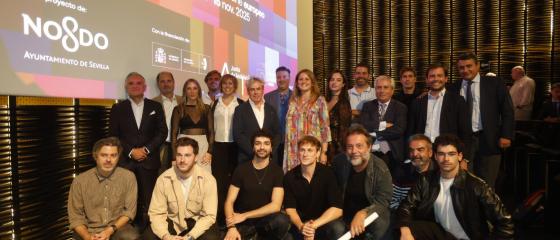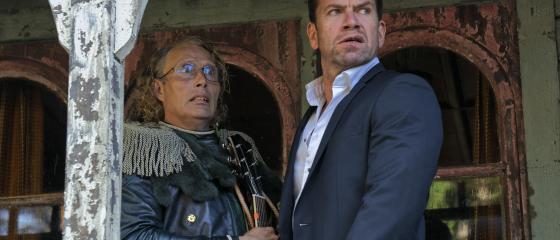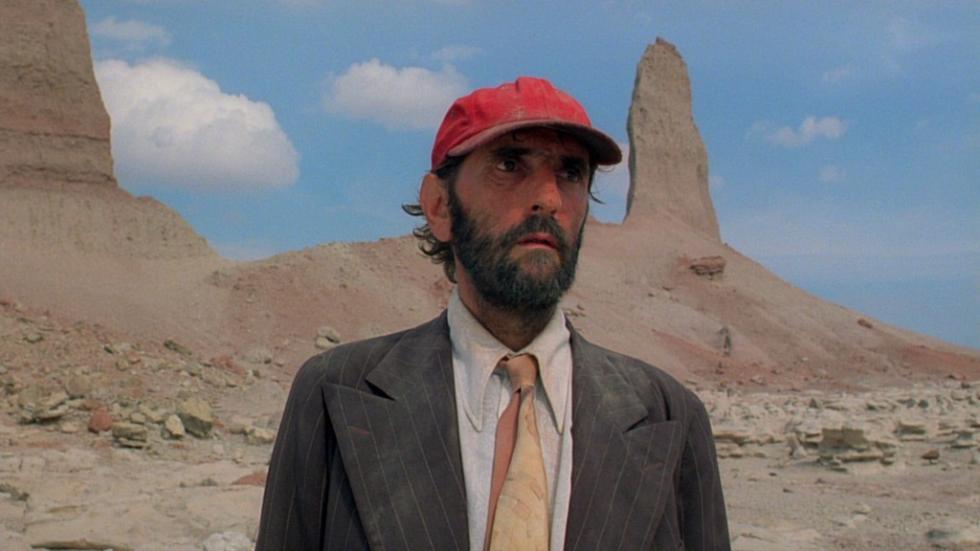
- Restored iconic feature films such as Alone, The Mission, Big Deal on Madonna Street and Paris, Texas to be screened
- The Festival’s two new competitive sections – Rampa and Alumbramiento – feature several world debuts
The 21st Seville European Film Festival, scheduled from 8 to 16 November, will open a dialogue on the audiovisual sector’s past and present. The festival looks to explore the past to highlight the relevance cinema has as cultural heritage and as a cornerstone for the productions of tomorrow. Alongside some of the most recent titles in European cinema, this year’s programme recovers epic films produced on the continent in its Classics section. Similarly, and in the same vein of reflecting on the past, it commemorates one of the most emblematic historical milestones in Portugal’s recent history with the Carnation Revolution series. In turn, the festival’s new sections Rampa, showcasing debut and second films, and Alumbramiento, featuring films not distributed in Spain, include 18 and 10 feature films respectively.
Digitally restoring iconic films ensures that era-defining works remain accessible, continuing to inspire audiences and the creative voices of tomorrow. Under this premise, and through the Classics section, this November, the Festival offers a new opportunity to experience unforgettable feature films in restored versions – films that defined a generation and left a lasting impact on cinema.
This section starts by revisiting a landmark film in Andalusian cinema Alone, Benito Zambrano’s first feature film, which won the Berlinale Panorama Audience Award and several Goya awards for its director and main actors. Its screening coincides with the 25th anniversary of its production, prompting its digitisation and restoration. Awarded the Palme d'Or at Cannes, with majestic cinematography and an unmistakable slide-guitar soundtrack, Paris, Texas, by Wim Wenders, is a cult classic. Seville will premiere in Spain the restored version that was presented at Cannes this May.
The Italian comedy Big Deal on Madonna Street, based on a story by Italo Calvino, is directed by Mario Monicelli, considered one of the masters of commedia all'italiana. It features a memorable cast including Vittorio Gassman, Marcello Mastroianni and Claudia Cardinale. One of the Festival’s other Classics is The Mission by British director Roland Joffé, with flawless performances by Robert de Niro and Jeremy Irons, who is part of the jury of the Festival’s Official Selection along with the film’s producer, David Puttnam. This story of redemption is set in an 18th-century Jesuit mission in the middle of the tropical jungle near the Iguazú Falls. Completing this emotional European retrospective is the restored film presented at the San Sebastian International Film Festival Tasio, Monxto Armendáriz’s debut. This drama tells the story of a young charcoal burner from Navarre who prefers the freedom of the mountains amid rural exodus.
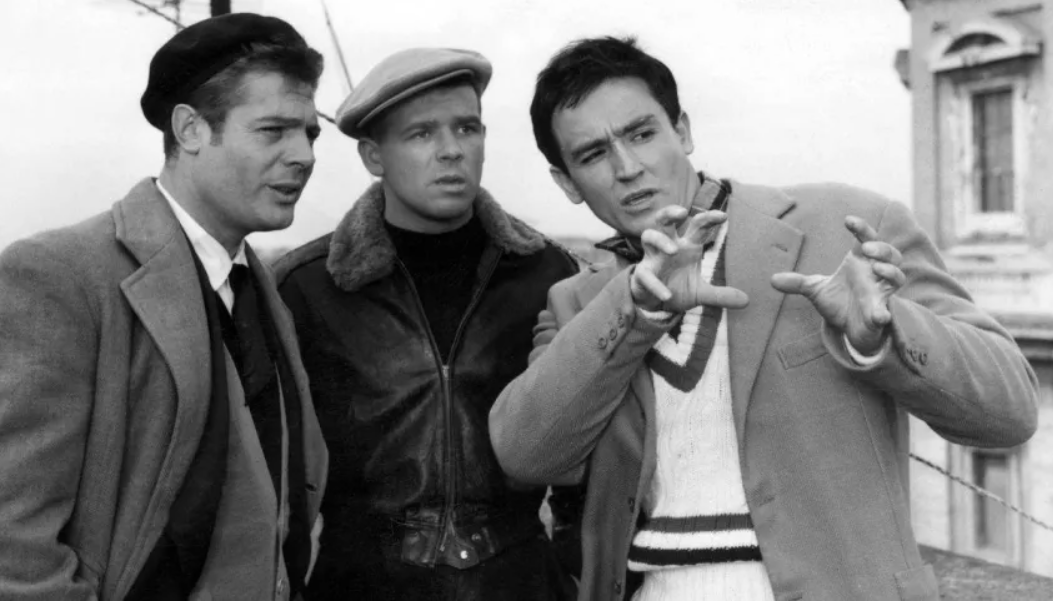
Big Deal on Madonna Street
The Carnation Revolution on film
On 25 April 1974, the Portuguese people rose against the dictatorship of António de Oliveira Salazar. Forty years later, the Festival commemorates the Carnation Revolution with a series of films made during that convulsive period that changed Portuguese society forever. The cinema of the late 1970s is revealed in this selection as much more than a relic of the past; it is both a historical memory and an open school for those who want to learn, innovate and create new stories that will resonate in the future. Along these lines, the Carnation Revolution series highlights the transcendence and legacy of the time that marked the beginning of democracy in Portugal.
Mainly featuring documentaries, the series includes Scenes from the Class Struggle in Portugal (1977), a film by the Americans Robert Kramer and Philip Spinelli. It combines archive footage, still photographs and interviews on the Portuguese liberation movement. Similarly, José Nascimento documents the agrarian reform adopted in the Alentejo region in Terra de pão, terra de luta (1977).
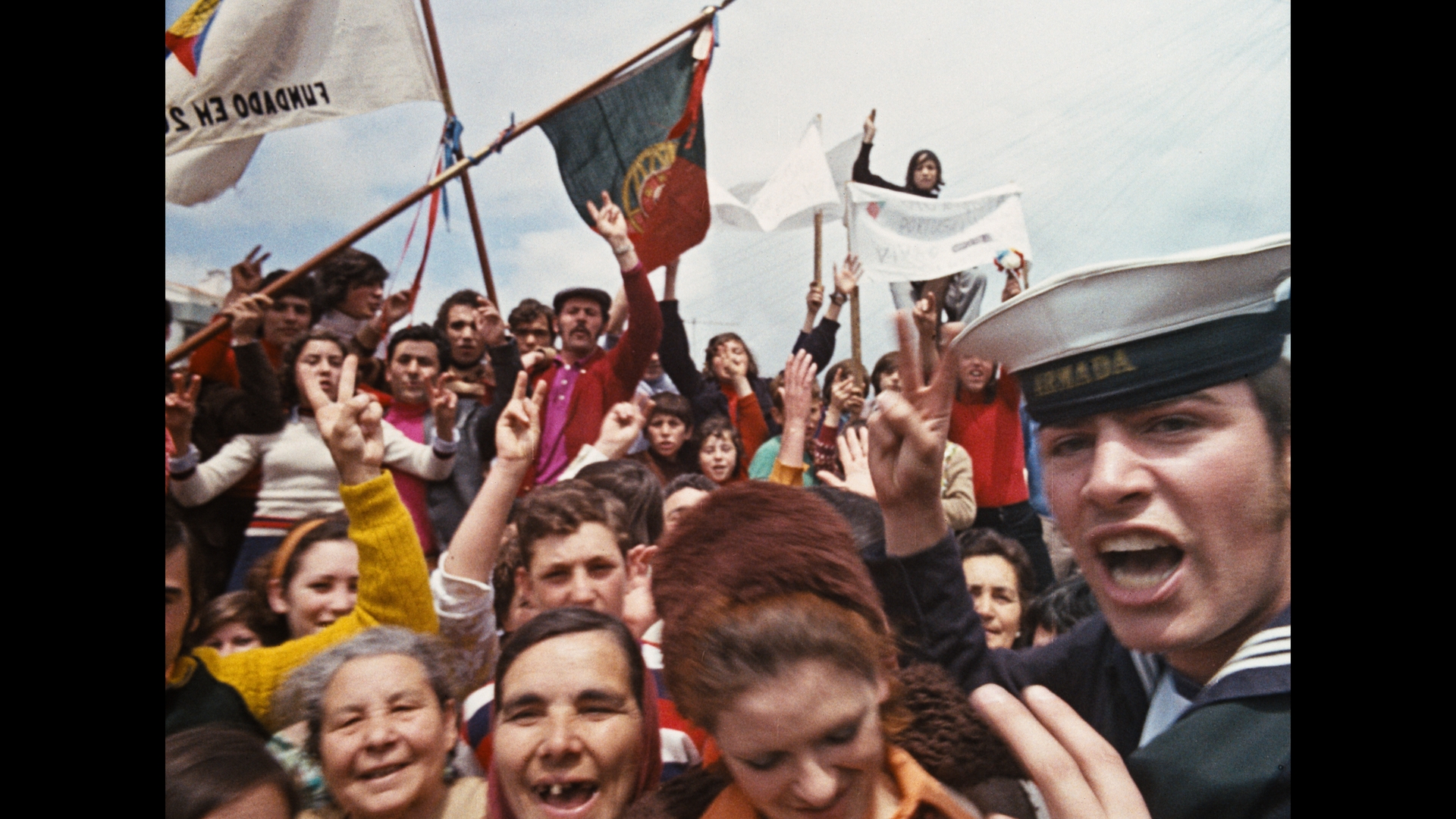
Scenes from the Class Struggle in Portugal
Combining elements of fiction and ethnographic documentary, Margarida Cordeiro and António Reis created the unforgettable Trás-os-Montes (1976), featuring a cast made up of inhabitants of the Portuguese region of the same name. The same region’s folklore is portrayed in Noémia Delgado’s Máscaras (1976), focusing on the area’s winter rituals. Also straddling fiction and non-fiction is Acto dos Feitos da Guiné (1980), the anti-colonial portrait of Guinea-Bissau and the war for independence with Portugal directed by Fernando Matos Silva.
Fictional overtones can also be observed in Gente da Praia da Vieira (1976), in which António Campos shows the migration of fishermen from a coastal town to the calmer waters of the Tagus. The same director made Paredes Pintadas da Revolução Portuguesa (1976), a short film about the revolutionary graffiti on the walls of Lisbon narrated by the painter António Domingues.
The days between 25 April 1974 and 1 May are portrayed in The Guns and the People (1975), a documentary by the Colectivo dos Trabalhadores da Actividade Cinematográfica which captures the movements that made the Carnation Revolution possible. The only fiction film in the series is A fuga (1978) by Luís Filipe Rocha, which tells the story of a group of prisoners attempting to escape from the Peniche Fortress, a facility for political dissidents in northern Portugal.
New titles for Rampa and Alumbramiento
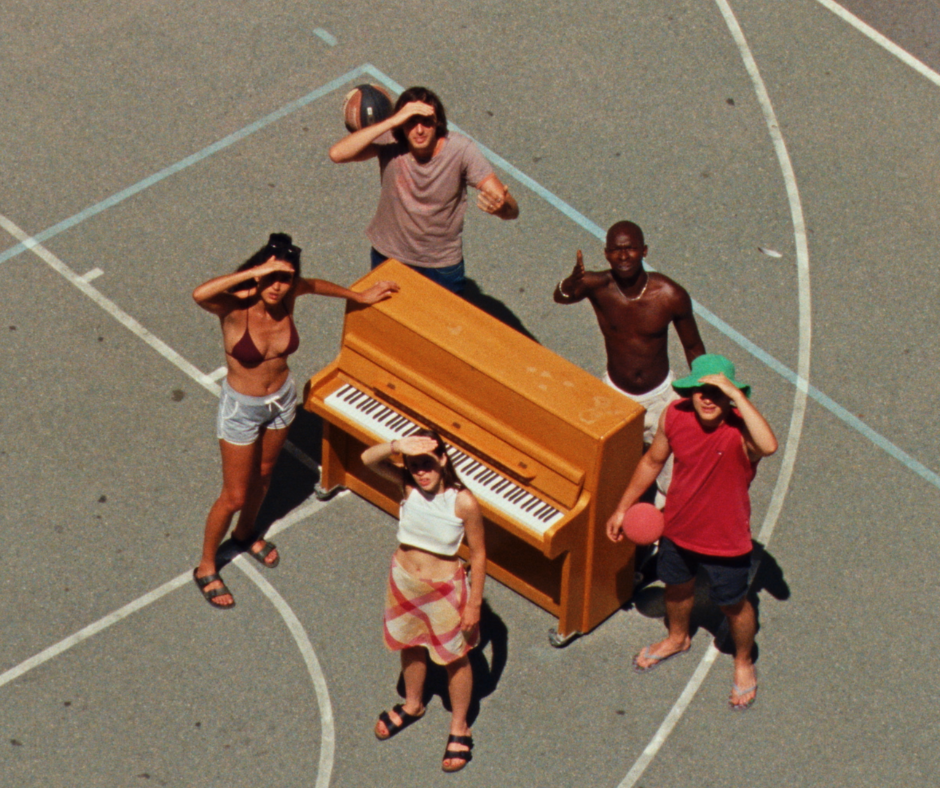
Eternal Playground
This reflection of the past is mirrored in the present through the new titles in the Rampa and Alumbramiento sections. Eight new feature films have been selected for the Rampa section, one of the Festival’s new additions for 2024, including several debuts. After a long acting career, Célice Sallette presents her first feature film as a director at the Seville Festival.
Niki portrays the passionate and turbulent life of Niki de Saint Phalle, a French sculptor, painter and filmmaker who transformed her pain into revolutionary art during the 20th century. Directors Joseph Rozé and Pablo Cotten present their debut feature film Eternal Playground. With a Y2K aesthetic and an irresistible soundtrack that alternates between original songs and pop anthems, this film is about faith, making unapologetic mistakes.
Following his acclaimed short films, Somali-Austrian writer-director Mo Harawe directs The Village Next to Paradise, a film about the love, trust and resilience of a newly reunited family in a windy Somali village.
The section’s last debut, Young Hearts, is directed by Anthony Schatteman, who co-wrote the screenplay with Lukas Dhont (Close, Girl). In his debut feature film, the Belgian director tells the story of first love between two 14-year-old boys, as they navigate the inner chaos unleashed by their newfound overwhelming and terrifying emotions.
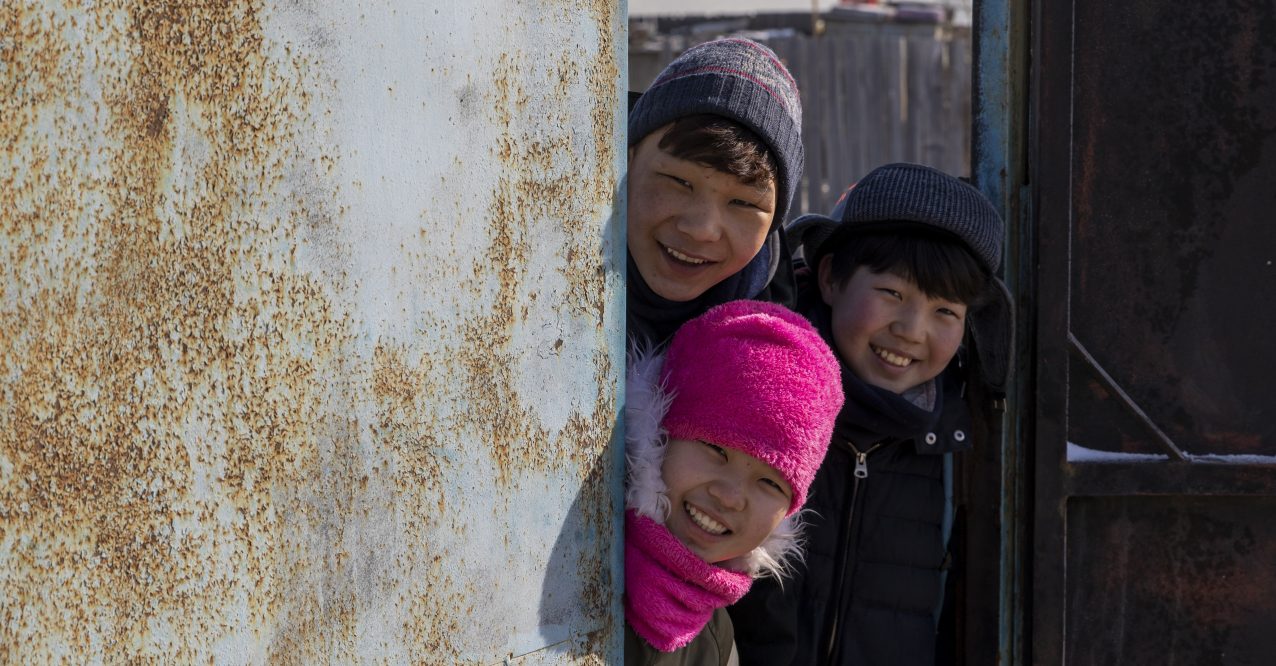
If Only I Could Hibernate
Another coming-of-age film in this section is If Only I Could Hibernate by director Zoljargal Purevdash. This film, the first Mongolian entry in the Official Selection at the Cannes Film Festival, follows a poor young man who is determined to win a physics competition for a scholarship, just as his mother goes to work in the fields, leaving him alone with his siblings.
Across the Sea, meanwhile, tells the story of Nour, an illegal immigrant who lives in Marseille working as a small-time smuggler until he meets an unpredictable and charismatic policeman and his wife. Its director, French-Moroccan Saïd Hamich Benlarbi, drew inspiration for his second feature film from directors such as Rainer Werner Fassbinder, Ettore Scola and Todd Haynes.
After his multi-award-winning debut A Son, Mehdi M Barsaoui directs Aïcha, nominated for the Orizzonti Award for Best Film at the Venice Film Festival. In the film, a young woman in her twenties seizes an opportunity created by an accident to escape her life with her parents in southern Tunisia.
Exiled in Washington DC since the Taliban took power in 2021, Afghan director Roya Sadat’s films challenge oppressive ideologies and extremist regimes. In Sima’s Song, two Afghan women with differing ideologies find common ground in their shared passion for women’s rights, forging a sisterhood in pre-civil war Afghanistan.
Titles by emerging filmmakers who bring their debut or second films to Seville, in addition to those already announced: two world premieres Smell of Burnt Milk by German director Justine Bauer and Somewhere in Love by French director Morgan Simon; Carlo Sironi’s coming-of-age My Summer with Irène, Damian Kocur’s Under the Volcano, Laurynas Bareisa Award winner for best director at the Locarno Film Festival Drowning Dry, Christopher Andrews’ thriller Bring Them Down, and the debut films by José Manuel Carrasco (Miocardio), Laetitia Dosch (Dog on Trial), Diogo Costa Amarante (We’re on Air) and Denise Fernandes (Hanami). The jury tasked with selecting the Rampa award winners includes writer, screenwriter and producer Fernando Navarro, film producer, CEO of Áralan Films and president of the Andalusian Film Academy, Marta Velasco, and producer Sergio Jiménez.
Placing a spotlight on cinema at the margins
The Alumbramiento section proposes open and direct cinema with original stories that yet to be distributed in Spain. So far, Emilie Girardin's One Dances, the Other Doesn't, the second feature film by Dutch director Peter Hoogendoorn, Three Days of Fish, and the hybrid documentary The Wolves Always Come at Night by Gabrielle Brady have been announced. Seven new films join this section. Austrian actor and comedian Josef Hader uses his trademark sober, bittersweet humour in Andrea Gets a Divorce, a tragicomedy that demystifies rural microcosms. Another comedy, this time through a social lens, is Striking the Palace, a laugh-out-loud tale of sisterhood and resistance. With a standout all-female cast directed by Nessim Chikhaoui, it explores the bustling life of a grand Parisien hotel as experienced by its chambermaids. French director Julien Menanteau unleashes a spirited and raw style in his first feature film, Lads, which shows the cruelty, rivalry and prevalence of money in the world of horse racing.
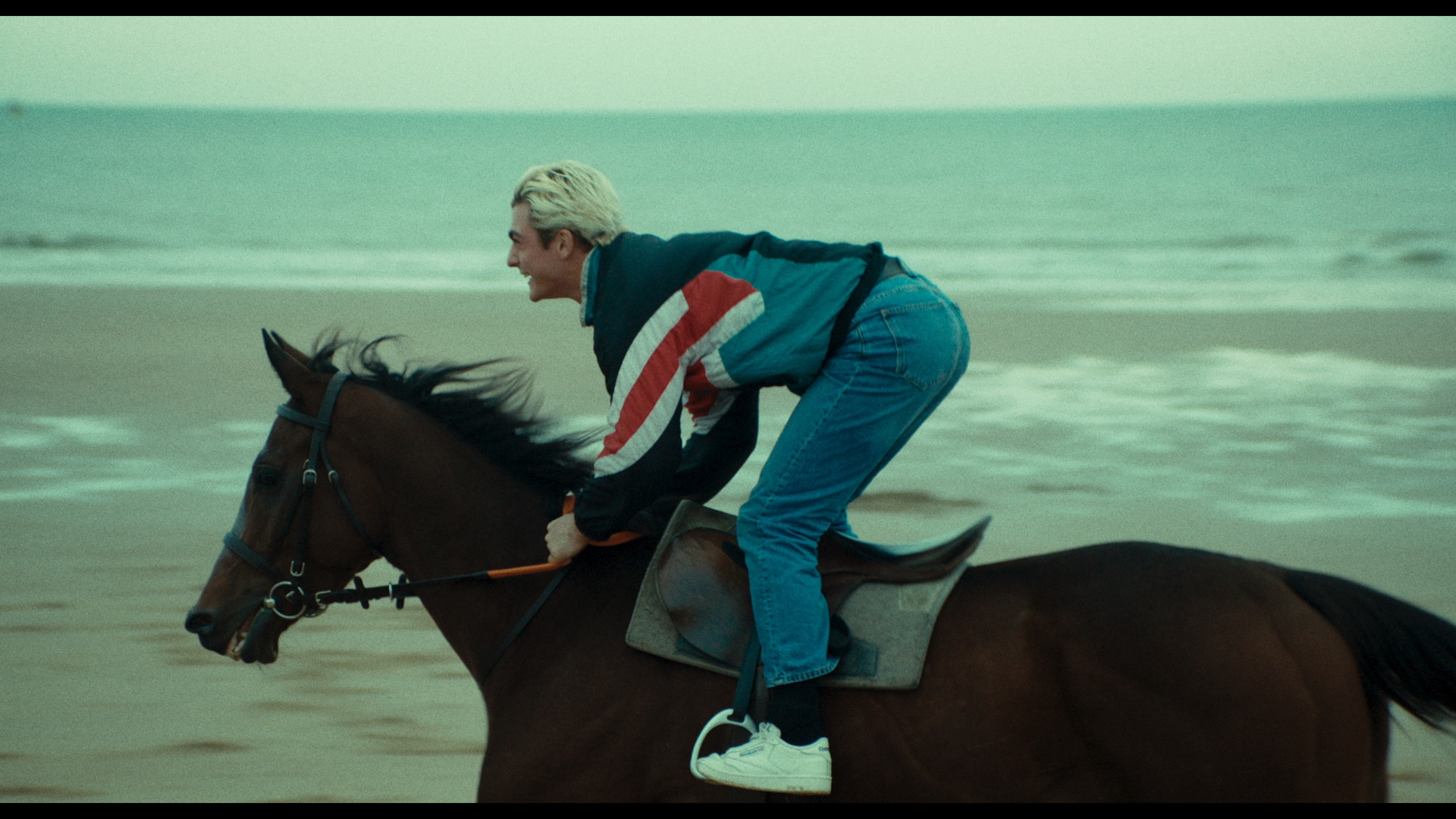
Lads
Placing a spotlight on cinema at the margins
Meanwhile, against the backdrop of the economic crisis, four young people from a generation lacking prospects occupy a building under construction in Los Bárbaros. Javier Barbero and Martín Guerra direct this film, which rejects the injustices of the system during the real-estate bubble. Another film set during a real-estate boom, that of the Algarve in the 1990s, is O Vento Assobiando nas Gruas. Directed by Jeanne Waltz, this film adaptation centres on a young woman who discovers a Cape Verdean family living in her late grandmother’s factory. After winning three Swiss film awards with her debut and directing episodes in cult series, Lisa Brühlmann makes and stars in When We Were Sisters. In this film, a new couple goes on holiday with their respective teenage daughters, leading to a narrative of shared loneliness and self-imposed prisons.
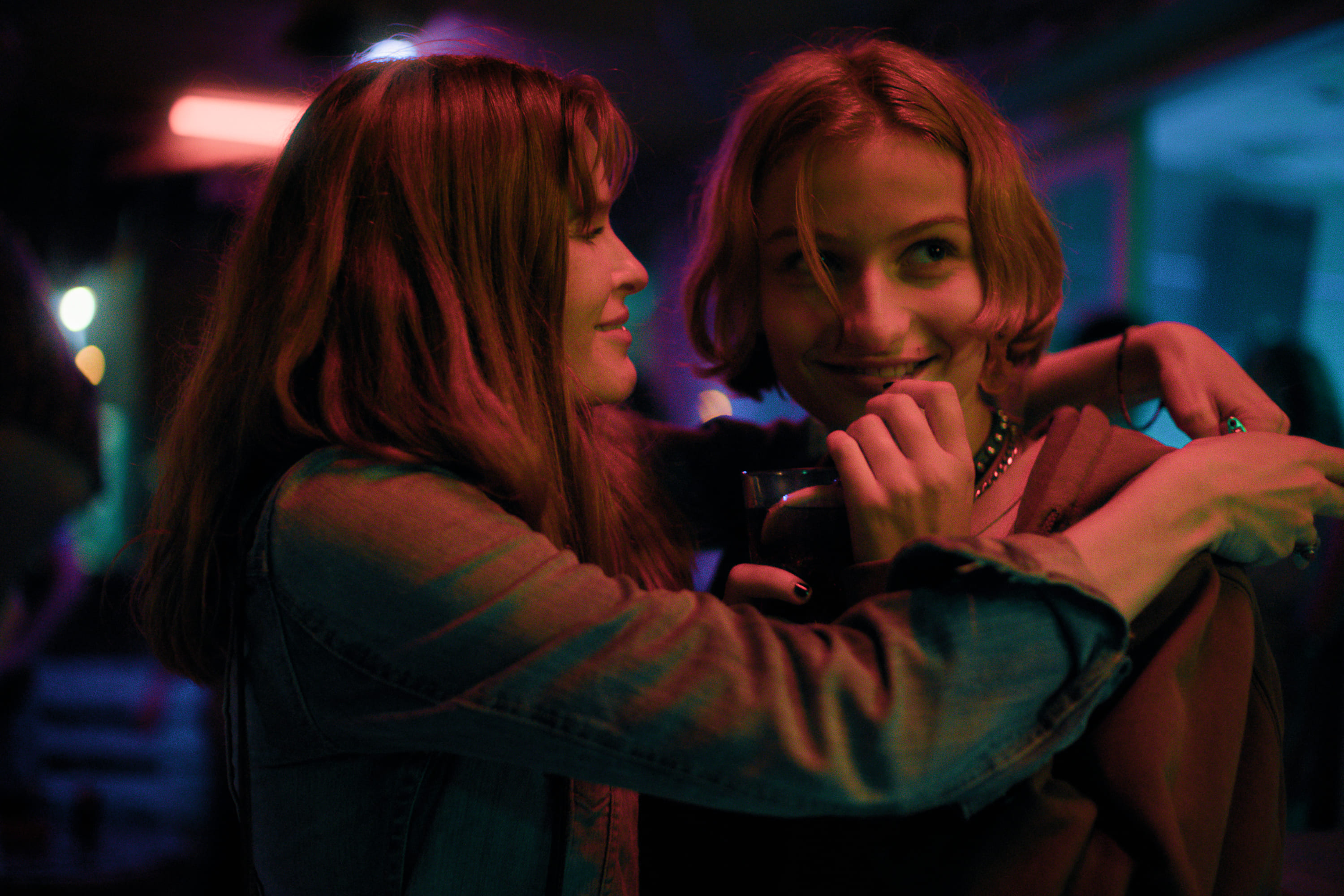
When We Were Sisters
Carolina Pavone debuts with Quasi a casa, a film with distinct character and a successful ambiguity that explores the love-hate relationship between an aspiring young musical star and the French singer she idolises. The jury of the Alumbramiento section – another of the additions for this 21st edition – is made up of the programmer and teacher José Antonio Hurtado, the director and screenwriter Esteban Crespo and Doctor in Advertising and lecturer María Rosa Collell Riera.



